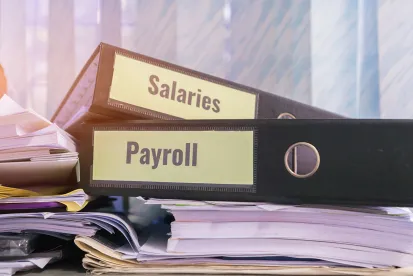On August 24, 2020, the U.S. Small Business Administration (SBA), in consultation with the Department of the Treasury (Treasury), released guidance with regard to the forgiveness of Paycheck Protection Program (PPP) loans in the form of a new Interim Final Rule (IFR). The IFR is currently divided into two sections, each of which are briefly outlined below. Although some of the topics addressed in the IFR were touched upon in previously released guidance, there are some new clarifications and helpful examples regarding how borrowers should calculate their PPP loan forgiveness amount. A copy of the IFR can be found here.
-
Owners: The first section of the IFR contains one specific question addressing when a shareholder of an S or C Corporation is subject to the owner-employee limitations on compensation. Specifically, this section clarifies that owner-employees with less than a five percent ownership stake in an S or C Corporation are not subject to the owner-employee compensation rule, which caps the amount of loan forgiveness for payroll compensation attributable to an owner-employee.
-
Eligibility of Certain Nonpayroll Costs for Loan Forgiveness: The second section of the IFR contains two questions regarding the forgiveness eligibility of certain nonpayroll costs. The first question clarifies that nonpayroll costs attributable to the business operation of a tenant or sub-tenant of the PPP borrower or, for home-based businesses, household expenses, are not forgivable. The IFR contains four illustrative examples with regard to this initial question. The second question clarifies that rent or lease payments to a related party are eligible for forgiveness, provided that: (1) the amount of loan forgiveness requested for rent or lease payments to a related party is no more than the amount of mortgage interest owed on the property during the Covered Period that is attributable to the space being rented by the business, and (2) the lease and the mortgage were entered into prior to February 15, 2020. In this context, the related party would not also be eligible for forgiveness of this amount; there is no double dipping. It is also important to note that although rent or lease payments to a related party may be eligible for forgiveness, mortgage interest payments to a related party are not eligible for forgiveness. Any common ownership between the business and the property owner will qualify as “related parties” for these purposes.





 />i
/>i

